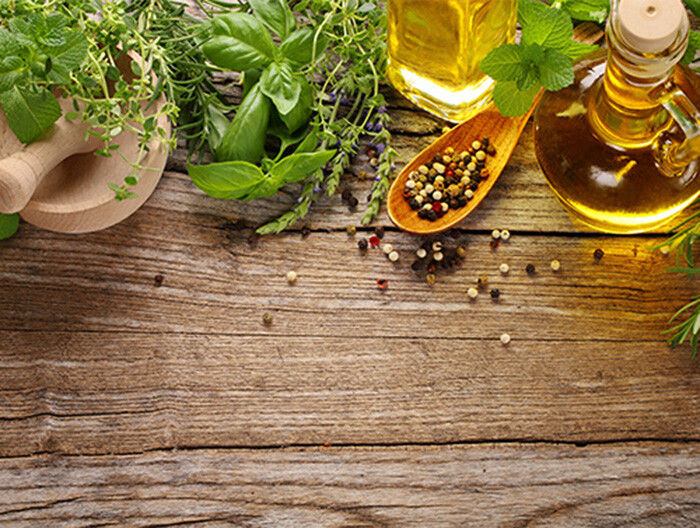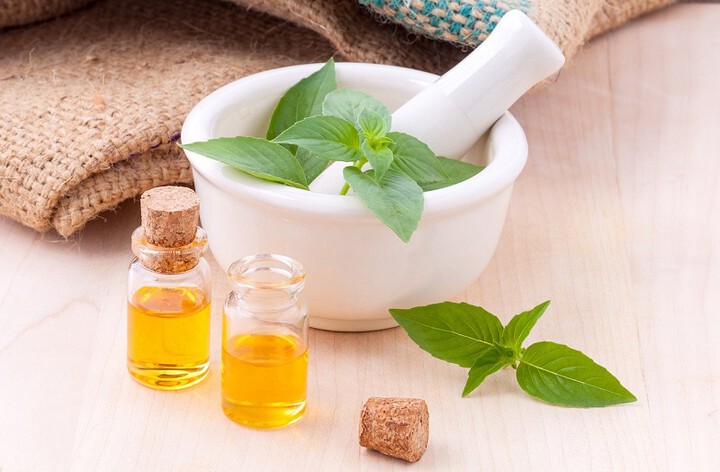
An herb may consist of an entire plant or portions of it. Herbs are often used for its scent, flavor, or medicinal properties. Herbal supplements are ingested by people who suffer from particular physical or psychological ailments in order to improve their health.
Herbs have been used for centuries because of their health benefits. Herbal supplements come in a variety of forms, including capsules, powders, tinctures, teas, tablets, extracts, and partially fresh or dried plant material.
Herbal medicines should be administered under the supervision of a qualified health professional. If taken wrongfully, herbal medicines can cause complications, especially if the individual taking the herbal supplement has a regularly prescription drug regimen to treat their illness.
Some recommendations to consider before taking an herbal supplement includes: consulting your physician first, read the labels and take dosages accordingly, and refrain from taking herbal supplements if pregnant or nursing.
Use sound judgment and exercise the necessary precautions, but do not dismiss the healing properties within these magnificent plants.
History of Herbal Medicine
Herbal medicine predates the earliest recorded document of attempts at healing. In fact, evidence suggests a 60,000-year-old collection of pollen from over eight different plant species, seven currently used in various herbal remedies. This collection was found near a Neanderthal’s remains around northern Iraq. The Ancient Sumerians utilized medicine plants, such as laurel, caraway, and thyme, whereas the Egyptians are rumored to have used garlic, castor oil, coriander, mint, opium, and indigo for various healing rituals. In fact, the Old Testament itself has reputed the specific herb use of mandrake, caraway seeds, barley, wheat, rye, and vetch.
Other herbal medicine applications stem from the roots of Ancient India, also known as Ayurveda, whereby over 700 medicinal plants, mineral, and animal sources are used in the treatment of human illness. The Ancient Chinese contributed to the field of modern medicine with their introduction of a pharmaceutical drug called ephedrine. The Chinese herald as a forerunner for other alternative treatments, such as Qigong and acupuncture.
Types of Herbal Medicine
Primitive and civilized societies have used herbs to treat diseases since the dawn of mankind. In fact, modern medicine remains in its infantile stages in comparison to herbalism. Herbal medicine was practiced by several dominate traditions over a long period of time, including the classical herbal remedy system as dictated by the Greeks and Romans, the Siddha and Ayurvedic medicine systems native to South Asia, Chinese herbology, Traditional African Medicine, Shamanic herbalism, Native-American medicinal applications, and Unani-Tibb.
Modern medicine has implemented several of these herbal properties into pharmaceutical drugs, including aspirin, digitalis, quinine, and opium. Herbal medicine still continues its influence with more than eight percent of the world`s population taking some form of herbal treatment for their medical problems. In fact, for the most part, modern medicine remains heavily dominated by industrialized societies.

Modern Uses of Herbal Medicine
The four primary approaches to using plants as medicine include magical and shamanic, energetic, physiological function, and synergistic combination through the plant`s chemical reactions with human biochemistry. Most non-industrialized societies recognize herbs for their perceived spiritual applications. For instance, the herbal practitioner has inherited or cultivated spiritual gifts that allow him or her to use herbs for the sole purpose of affecting the spirit or soul of an individual. The energetic perspective of herbal medicine requires that the practitioner acquires the formal training needed to manipulate energies affecting the body of the afflicted. In this tradition, the practitioner does not need supernatural powers to provide the necessary healing involved with the herbs.
Other practitioners focus on the physiological and chemical reactions that the plants have on the human body once ingested. Depending on the practitioner, this may or may not have spiritual implications. Some regard the recovery from the basis of the physical compounds within the plants itself, while as others perceive the herbs creating a healing progress within the physical body through spiritual undertakings. Each herb and root provides relief to one specific ailment as outlined and referenced through centuries of research across a number of traditions and cultures.
Benefits of Herbal Medicine
Herbs can provide the necessary treatment for minor and major health problems, including sleep disturbances, common cold, weight loss, allergies, digestive disorders, hair and skin problems, anxiety, cardiac and respiratory problems, diabetes, hypertension, and much more. Depending on the underlying condition, various parts of a specific plant will be used to treat the symptoms and cause of the problem.
Herbalists may prescribe specific stems, leaves, barks, roots, and seeds of a plant to prepare for remediation. For instance, if a particular patient suffers from low blood sugar levels, then a practitioner may suggest bitter melon, gurmar, garlic, fenugreek seed, or blueberry leaves elevate the secretion of insulin. Other herbal medicines aid in the body`s natural detoxification process, such as Psyllium husk, Rhubarb juice powder, chlorella, aloe vera, garlic, and aloe vera. In fact, chlorella and cilantro have been remarkably noted for chelated methods of heavy metals from the body`s tissues.
Weight loss can be induced to stave off obesity by ingesting appetite suppressants, cathartics, stimulants, and diuretics. Some of those herbs may include alfalfa, senna seeds, hawthorn berries, nettle, kola nut, chickweed, flax seed, and burdock root. Additionally, some herbs may help to target multiple ailments or improve general health.